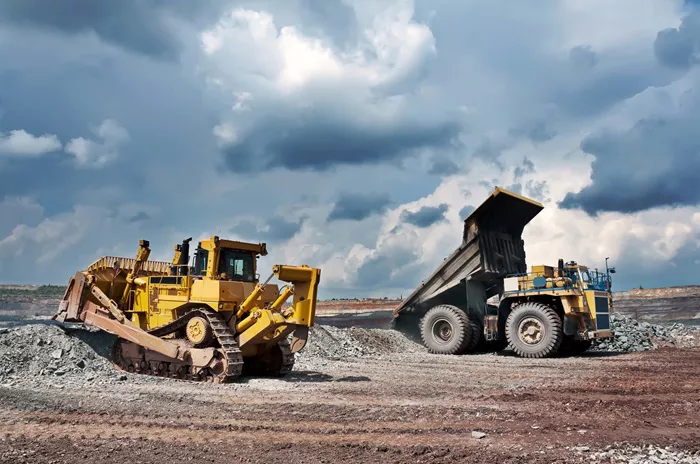Heavy-duty vehicles are a critical component of modern industry and infrastructure, from freight trucks that transport goods across countries to buses carrying large numbers of passengers. The power source that drives these massive machines is predominantly diesel engines. Understanding why diesel engines are chosen for heavy vehicles requires exploring their mechanics, fuel efficiency, and the suitability of their torque characteristics for demanding applications.
Introduction to Diesel Engines in Heavy Vehicles
Diesel engines are synonymous with heavy vehicles. Unlike lighter vehicles where gasoline engines are common, heavy-duty applications predominantly rely on diesel engines due to their unique advantages. Diesel engines offer a combination of fuel efficiency, durability, and torque that gasoline engines typically cannot match. For an industry that revolves around high payloads, long distances, and demanding workloads, these advantages make diesel the engine of choice.
The Mechanics of Diesel Engines
To understand why diesel engines are preferred in heavy vehicles, it is essential to look at how they function differently from gasoline engines. Diesel engines use compression ignition, a process that is inherently more efficient than the spark ignition system used in gasoline engines.
How Compression Ignition Works
In diesel engines, air is compressed to a much higher degree than in gasoline engines. This high compression causes the air temperature to rise significantly, allowing fuel to ignite upon injection without the need for spark plugs. This process not only makes diesel engines more efficient but also more suited to handle the high stress of heavy workloads.
Fuel Efficiency and Economic Benefits
Fuel efficiency is a significant factor for industries that operate large fleets of vehicles. Diesel engines are designed to consume fuel more efficiently, providing greater mileage per liter than gasoline engines.
Why Diesel is More Efficient
Diesel fuel has a higher energy density than gasoline, meaning it releases more energy per unit. Diesel engines also burn fuel in a manner that minimizes waste, making them highly efficient for prolonged use.
Economic Impact of Fuel Savings
For heavy vehicle operators, the economic benefits of diesel fuel efficiency are substantial. Diesel engines offer fuel savings that can significantly reduce operational costs over time, which is essential for businesses with thin profit margins.
Diesel Engines and High Torque Performance
Heavy vehicles require a tremendous amount of torque to move massive loads, especially at lower speeds, where most of the power is needed for starting and climbing inclines.
Torque and Load Handling
Diesel engines produce high torque at low RPMs, which is crucial for heavy-duty vehicles. This high torque provides the force necessary to move heavy loads without requiring the engine to run at high speeds, reducing wear and tear on the engine components.
Advantages Over Gasoline Engines in Torque
Gasoline engines, in contrast, are designed for high RPM performance but lack the low-end torque that diesel engines provide. This difference makes diesel engines more efficient for applications involving heavy loads and difficult terrains.
Durability and Longevity of Diesel Engines
Heavy-duty applications demand engines that can withstand continuous operation over long periods. Diesel engines are renowned for their durability, capable of lasting hundreds of thousands of miles with proper maintenance.
Robust Construction for Heavy-Duty Use
Diesel engines are built with more robust materials and components to handle high compression and the resultant forces. This construction makes them ideal for applications where downtime is costly and durability is paramount.
Extended Lifespan and Lower Maintenance Costs
A well-maintained diesel engine can last much longer than a gasoline engine under similar conditions. This longevity translates to reduced replacement costs and makes diesel engines a cost-effective choice in the long run.
Safety and Reliability in Diesel Engines
Safety is a crucial concern for heavy vehicles, and diesel engines offer certain advantages in this regard. Diesel fuel is less volatile than gasoline, which reduces the risk of accidental combustion.
Lower Risk of Fire and Explosions
Diesel engines use compression rather than spark ignition, which makes them less prone to accidental ignition. Additionally, diesel fuel has a higher flash point, meaning it requires more heat to ignite, further reducing the fire risk.
Environmental Considerations and Diesel Technology
In recent years, environmental concerns have led to a reevaluation of diesel engines, especially with the advancement of emissions regulations. Modern diesel engines have become significantly cleaner due to new technologies that reduce pollutants.
Emission Control Technologies
Technologies such as Diesel Particulate Filters (DPFs) and Selective Catalytic Reduction (SCR) systems are now standard in modern diesel engines. These technologies capture and reduce harmful emissions, aligning with stricter environmental standards.
Alternative Fuel and Hybrid Diesel Innovations
The industry is also moving toward hybrid diesel-electric systems and exploring biodiesel as an alternative fuel source. These advancements aim to retain the benefits of diesel engines while reducing their environmental impact.
Conclusion
Diesel engines remain the preferred choice for heavy vehicles due to their superior torque, fuel efficiency, durability, and safety. Although environmental concerns persist, advancements in diesel technology have made these engines more environmentally friendly, allowing them to meet stringent emissions standards. For industries that rely on heavy-duty transportation, diesel engines provide an unmatched balance of power, efficiency, and reliability that gasoline engines struggle to offer.
Related topic:
5 Most Reliable Audi Diesel Engines

